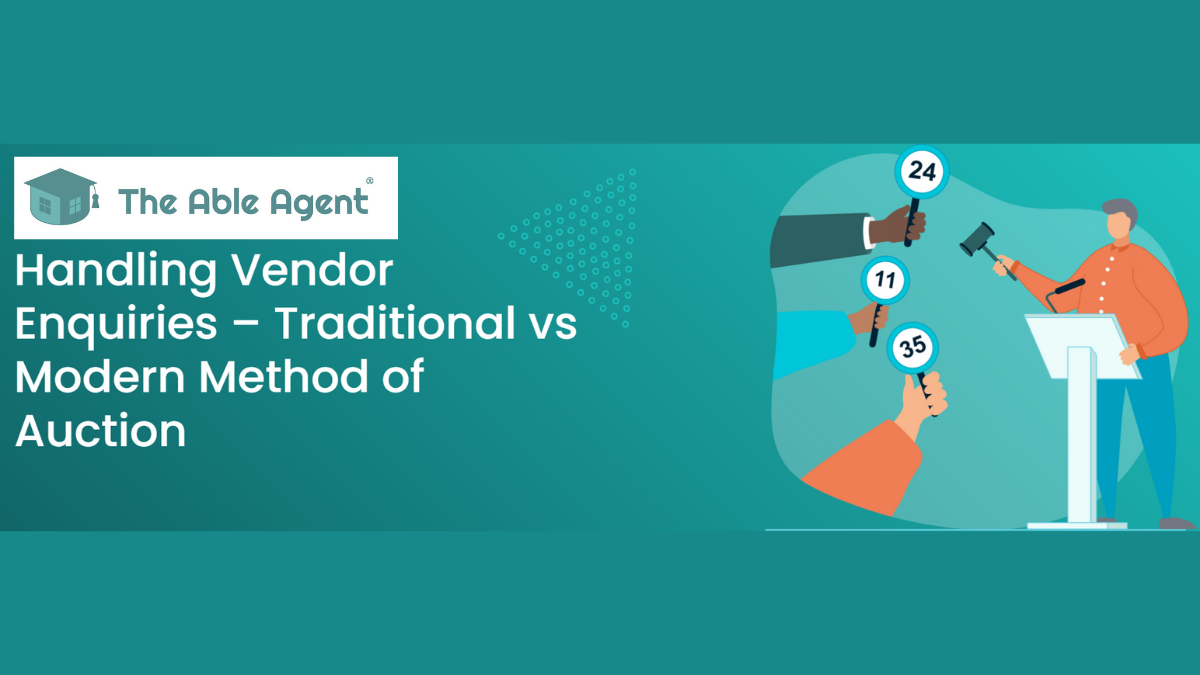When it comes to handling vendor enquiries, it is important for agents to have a thorough understanding of all sales types to ensure they are providing potential vendors with the best options for their needs.
A common pitfall amongst agents’ sales knowledge is a lack of understanding of auctions. However, it is essential for agents to have a comprehensive understanding of auctions to provide vendors with greater flexibility when it comes to selling their residential home at auction, whether it is a house, flat, bungalow or castle!
How do house auctions work?
Historically, auction has been a tool to sell run down properties to sellers at a low price, however methods of auctions have evolved, with auction houses and estate agents now offering both traditional and modern methods of auction. Each of these auction methods work in different ways.
Auction is no longer for run down properties, but for all properties, with the focus shifting to the Vendor and their needs, rather than the property type itself. Essentially, auction is just another method of marketing that agents can use to increase interest in a property.
Traditional Method of Auction
Traditional auction, commonly referred to as unconditional auction involves the buyer exchanging a contract and paying 10% of the purchase price on the fall of the hammer, with the purchase typically being completed within 28 days. Both the buyer and seller are legally committed to sale in this method of auction. If a buyer pulls out, then they are liable to pay the 10% and can be sued by the vendor.
This method of auction is advertised for a specific date and time in advance, to allow potential buyers to view and inspect the property, make legal enquiries, and organise finances. A reserve price is set, and a sale is only made once the reserve has been met. The final price is determined on the day based on the demand, with interested bidders having to register prior.
Traditional / unconditional auctions typically restrict the number of buyers, as it tends to only suit cash buyers or those who can get a mortgage quickly.
Modern Method of Auction
The modern method of auction, also known as conditional auction, involves the buyer having to pays a non-refundable reservation fee on the fall of the hammer to secure a period of exclusivity. The buyer has a set timescale to reach exchange and further time to then complete the purchase. For the modern method of auction, a contract is not signed and so buyers cannot be sued by a vendor. Due to the increased flexibility provided by modern auction, a wider variety of buyers can be attracted, and unlike traditional auctions, you are not limited to cash buyers.
Modern methods of auction have become an increasingly popular option for sellers as the likelihood of the sale going through after the fall of the hammer is higher than traditional auction sales. The chances of getting the full market price are also higher using modern method of auction as it provides buyers with a greater timescale to complete the sale in comparison to traditional auction sales. Some vendors prefer to go through auction, as there are financial obligations to be made once the hammer falls which do not exist with conventional estate agency home sales, making the process more secure.
Handling Vendor Enquiries Training
The Able Agent’s handling vendor enquires training course covers each sales type in detail, with auction being one of these, to ensure agents are confident when handling all vendor enquiries. Find out more about this course here or book a one2one with Charlotte for a chat about our services.
Visit The Able Agents landing page for more information and to see reviews



